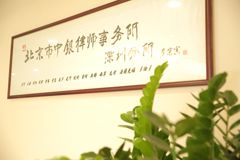
近日,本所譚岳奇律師、楊鎮(zhèn)章律師等組成的律師團隊在深圳A公司與英國B公司之間貨運代理服務(wù)合同糾紛涉外訴訟案件中為深圳A公司提供訴訟代理服務(wù),本所律師提出的管轄權(quán)異議意見先后被深圳前海合作區(qū)人民法院、深圳市中級人民法院完全采納,最終裁定駁回英國B公司的起訴。上述裁定標志著深圳A公司在本案中的合法權(quán)益得到有效維護。
# 辦案過程
本所律師接受委托后,立即展開全面而深入的調(diào)查工作,仔細研究案件細節(jié),英國B公司主張的管轄權(quán)基礎(chǔ)存在重大瑕疵,英國B公司在開戶申請表、賬單、電子郵件中均要求其客戶認可雙方之間的交易受到其網(wǎng)站公布的“條款和條件”所載內(nèi)容的約束,該網(wǎng)站標準條款應(yīng)有效并入案涉合同之中。“條款和條件”中已明確約定該合同項下所產(chǎn)生的爭議應(yīng)由英國B公司注冊地管轄,故中國法院對本案沒有管轄權(quán),最終形成了管轄權(quán)異議的代理意見。在本案中,深圳前海合作區(qū)人民法院、深圳市中級人民法院均完全采納本所律師的上述代理意見。
# 本案的司法價值
根據(jù)本所律師的研究,網(wǎng)站標準條款“有效并入”原則在英美法系國家普遍適用,但對于合同一方當(dāng)事人網(wǎng)站上的標準條款是否能夠有效并入主合同之中,中國法并無明確規(guī)定。經(jīng)本所律師窮盡所有檢索方式,截至目前僅發(fā)現(xiàn)一個適用網(wǎng)站標準條款“有效并入”原則的司法案例。本案的裁決結(jié)果無疑會對后續(xù)處理同類案件提供有效參考價值,推動了中國司法與國際社會的接軌。
# 相關(guān)法律法規(guī)規(guī)定
《中華人民共和國民事訴訟法》第三十五條規(guī)定,“合同或者其他財產(chǎn)權(quán)益糾紛的當(dāng)事人可以書面協(xié)議選擇被告住所地、合同履行地、合同簽訂地、原告住所地、標的物所在地等與爭議有實際聯(lián)系的地點的人民法院管轄,但不得違反本法對級別管轄和專屬管轄的規(guī)定”。
第二百八十條規(guī)定,“當(dāng)事人訂立排他性管轄協(xié)議選擇外國法院管轄且不違反本法對專屬管轄的規(guī)定,不涉及中華人民共和國主權(quán)、安全或者社會公共利益的,人民法院可以裁定不予受理;已經(jīng)受理的,裁定駁回起訴”。
ZhongYin Attorneys Successfully Represent a Foreign Client to Obtain the Final Ruling Regarding International Trade Dispute
Recently, Mr. Tan Yueqi(Vincent) and Mr. Yang Zhenzhang represented for a Shenzhen Company(“Company A”) in a foreign-related litigation case regarding the freight forwarding service contract dispute between Company A and a British Company (“Company B”). The jurisdictional objections raised by Tan Yueqi(Vincent) and Yang Zhenzhang were fully adopted by the Shenzhen Qianhai Cooperation Zone People's Court and the Shenzhen Intermediate People's Court. At the end, Company B’s claim was dismissed. The above-mentioned ruling indicates that the legitimate rights and interests of Company A in this case have been effectively safeguarded.
Upon accepting the case, Zhongyin attorneys immediately launched a comprehensive and in-depth study, carefully examining the details of the case. It was found that the jurisdictional basis asserted by Company B contained significant flaws. In account application form, invoices, and emails, Company B required its clients to acknowledge that transactions between the parties were subject to the terms and conditions published on its website. These standard terms and conditions should be deemed to have been effectively incorporated into the relevant contract. The “Terms and Conditions” explicitly stipulate that any disputes arising under this contract shall be subject to the jurisdiction of the place where Company B is registered in the UK. Therefore, the Chinese courts have no jurisdiction over this case, leading to the formation of the jurisdictional objection argument by Zhongyin attorneys. In this case, both the Shenzhen Qianhai Cooperation Zone People's Court and the Shenzhen Intermediate People's Court fully adopted the aforementioned argument presented by Zhongyin attorneys.
Applicable legal provisions
Civil Procedure Law of the People's Republic of China
Article 35 The litigants of a contract dispute or other property rights dispute may agree in writing on selection of the People's Court at the location of the Defendant's domicile, place of performance of contract, place of execution of contract, address of the Plaintiff, location of the subject matter, etc. or a venue which has actual connection with the dispute to be the People's Court which has jurisdiction, but shall not violate the provisions hereof on grade jurisdiction and exclusive jurisdiction.
Article 280 Where a party to the same dispute between the parties concerned files a lawsuit with a foreign court and the other party files a lawsuit with a people's court, or a party files a lawsuit with both a foreign court and a people's court, the people's court which has jurisdiction pursuant to this Law may accept the dispute. Where the parties enter into an exclusive jurisdiction agreement and select a foreign court for jurisdiction, which does not violate the provisions of this Law on exclusive jurisdiction and does not involve the sovereignty, security or public interest of the People's Republic of China, the people's court may rule on non-acceptance of the dispute; where the case has been accepted, the people's court shall rule to dismiss the lawsuit.
律師介紹



















